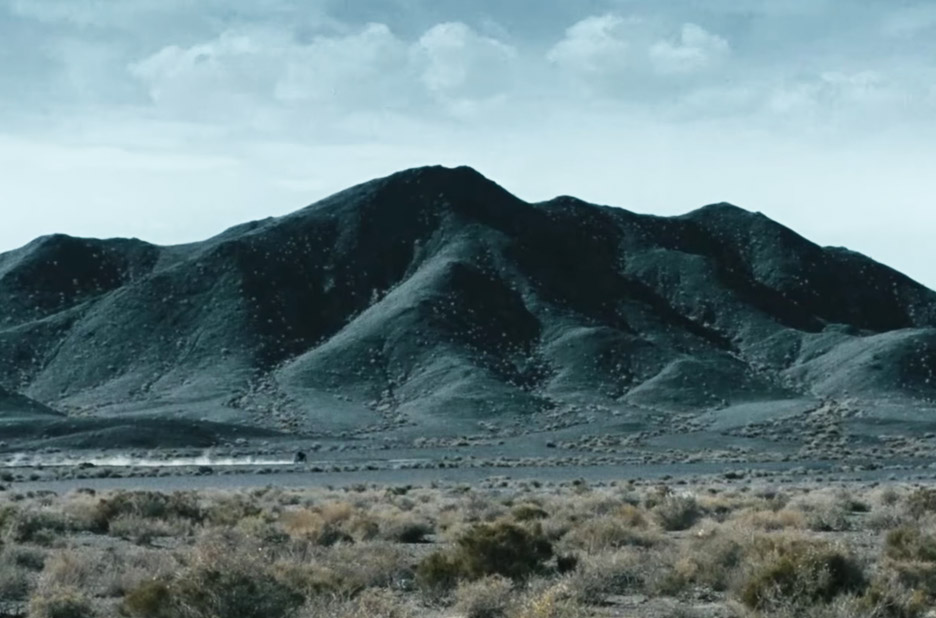Film
Black dog (2024)
Guan Hu
5/5
Poetic brutality of modern China
Worthy winner of Un Certain Regard prize at Cannes, this sad and beautiful film impresses with its slow-paced suggestive storytelling and stunning photography.
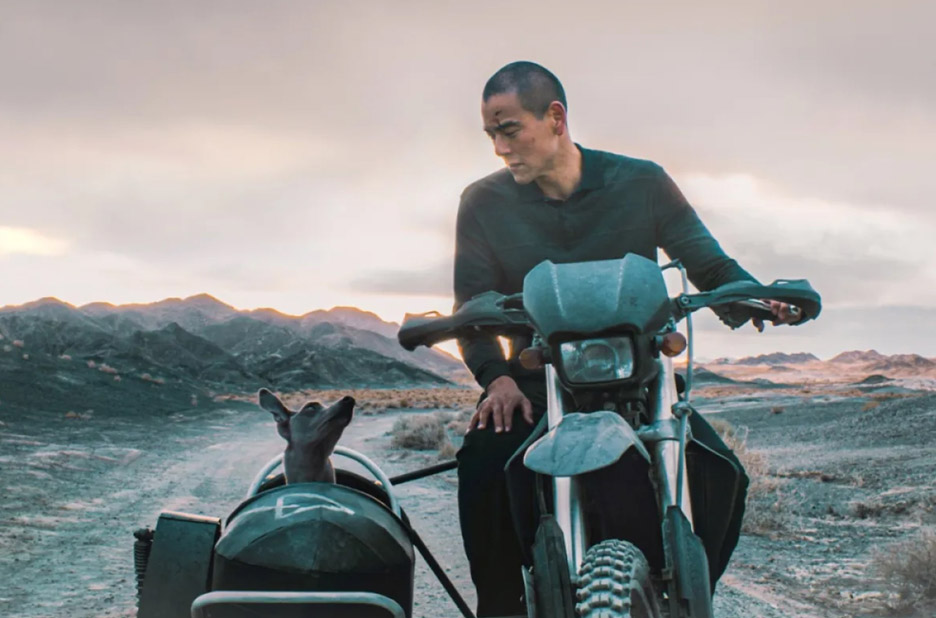
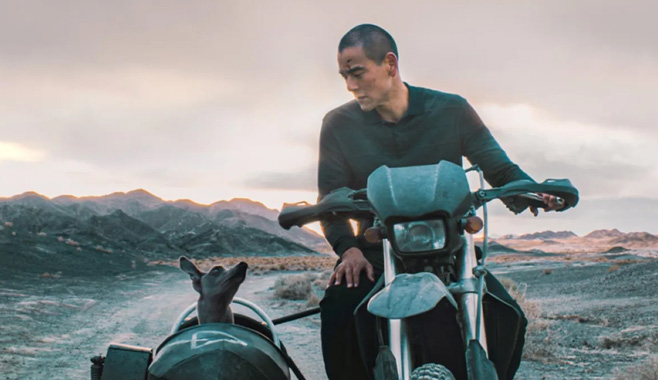
38-year-old Lang, played with conviction and charisma by Eddie Peng, returns to his hometown at the edge of the Gobi desert after being released from prison. We are in 2008, and Bejing Olympics are about to kick off, but the official excitement is not registering on the crumbling streets. The town is overrun with strays and simple yet characterful buildings are being demolished to make way for something allegedly better.
Slowly we piece together why Lang was sent to prison and the relationships he has with various people in the town. He used to be a star, motorcycle stuntman and rock musician, now he just waves it off. We only hear the taciturn Lang say a few sentences in the film. “Hi sis” is the first thing he says calling his sister on the phone a good twenty minutes into the film. “Do you still play?” is another memorable line he utters at a point we have begun to think he will never speak again.
Lang’s alcoholic father has moved into the zoo where he tends to the animals, presumably out of his own pocket. The tiger is fed porridge. The wolf had to be released as there was no money to feed him. The abandonment of animals signals the breakdown of civil society, nevertheless for every act of brutality there is one of kindness and loyalty, and there are many local people well-meaning towards Lang.
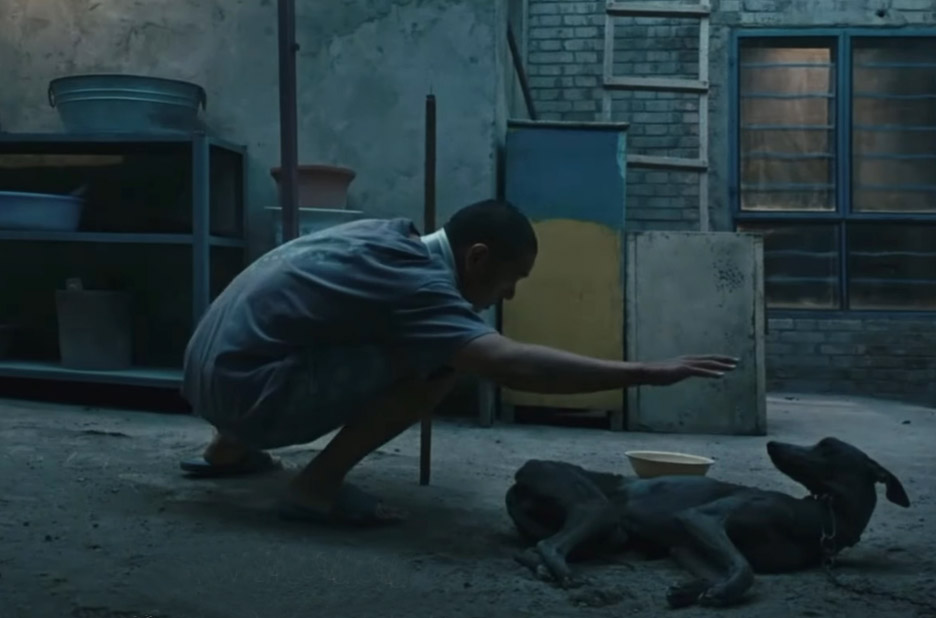
The authorities have dreamed up that strays need to be got rid of to ensure the town can get new investments. As a parolee, Lang is employed to capture strays, a job he is deliberately bad at, but this does not soften the brutality of dog hunting scenes. Surely when society gets to that point, there is something seriously wrong. But the inhabitants of this forgotten town take the mistreatment, abandonment and poverty in their stride, and keep going.
Lang accidentally befriends a wild stray black dog that he ends up being more attached to than anything else. The dog is like him, solitary, broken, mistrustful of everyone and quick to attack. This ropy but heart-meltingly characterful Jack-Russell-Greyhound cross called Xiao Xin received the Grand Jury Prize at the Palm Dog Awards 2024.
The dog is the first thing Lang starts caring for, the turning point in his rehabilitation. He becomes amazingly well behaved and well trained too quickly after he teams up with Lang, which is not particularly plausible, but we suspend disbelief to enjoy his loyalty in Lang’s harsh reality. In a lovely act of animal appreciation, all the dogs in the film get full credits at the end.
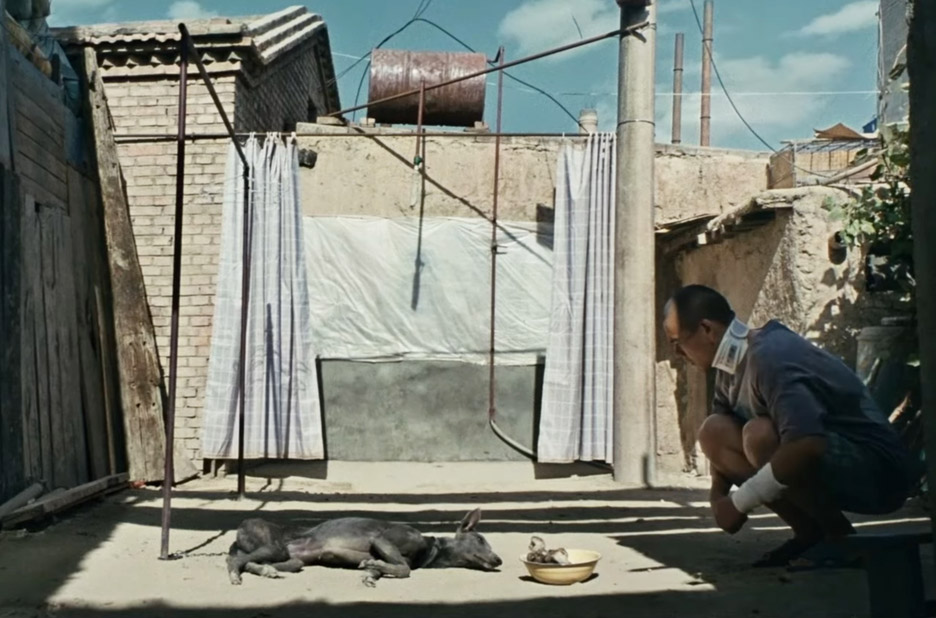
The director Guan Hu mentions in an interview that he lived with five dogs during the pandemic and spending so much time in isolation with them inspired him to make a film about intimacy and communication between humans and animals. The film is dedicated to ‘all those who have hit the road again’ and to Guan Hu’s father who died towards the end of the filming. The director acknowledges that the film was also an attempt to reflect on their relationship.
Cinematography by Gao Weizhe is stunning from the very beginning. The Gobi Desert, run-down and abandoned buildings, people and animals. The first scene shows the vast silent mesmerising desert, soon with hordes of strays running through, and in the distance the bus Lang is travelling on overturns in an effort to avoid the animals. There are many visually arresting moments, among them a scene of demolition filmed from a distance where we just see a building in the middle of others quietly disappear into smoke. You get the feeling that disappearance happens easily in this town to people and animals too.
But the key to this film is that poetry and beauty can be found anywhere. Lang gives himself a new start at the end, but we know that nothing of the traumatic past will be forgotten.
